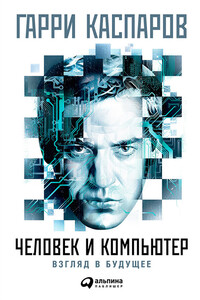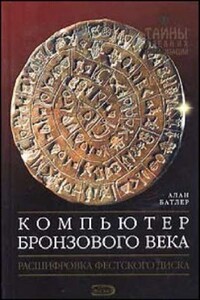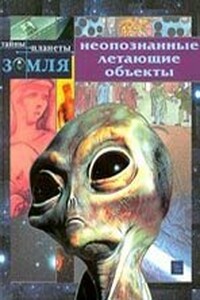Английский язык для специальных и академических целей: Международные отношения и зарубежное регионоведение. Часть 1 - [65]
Scandals are not the same as full-blown political crises, although it is often tempting to confuse the two. Crises can sometimes transform politics. Scandals rarely do. One reason why we often inflate the significance of democratic scandals is that all of them exist in the shadow of the greatest scandal of them all, which did result in a full-blown crisis and widespread political change. The Dreyfus affair, which split fin de siecle French society and reconfigured the power of the French state, is the scandal against which all others are measured. Every now and then the exposure of misdeeds in high places does indeed overturn the established order. But Dreyfus is the exception, not the rule. Most democratic scandals have very limited effects. They create a huge amount of fuss for a short period of time. Usually they offer moments of catharsis: a resignation, a trial, a conviction. What they do not produce is structural change.
The Reader
Here a comparison with the 1970s is instructive. It was not an age of great political scandals in Britain, though we had our usual share of embarrassments and fall guys, from Lord Lambton to Jeremy Thorpe. The true sense of crisis that gripped the western democracies coincided with the most significant democratic scandal since Dreyfus: Watergate. The ripple effects from Watergate contributed to a growing feeling in the middle of the decade that western democracy was rudderless, its most important player turned in on itself in a never-ending bout of recrimination and political bloodletting. Europe's democratic politicians often complained during the 1970s about the excessive power of the United States. But they also complained when that power went missing. Recent criticisms of the US, fuelled by the hair-raising spectacle of a government shutdown taking the country to the brink of a catastrophic default, follow a similar pattern. We don't like American democracy to overshadow ours, but nor do we like it when America's politicians neglect the rest of the world to pursue their endless infighting. We don't want America's politicians telling us what to do, but nor do we want them turning their backs on us.
As it was unfolding, Watergate looked like it might be a watershed, and Nixon's resignation was widely regarded as the moment for American democracy to renew itself. Yet in retrospect its significance seems very different. Like most scandals, Watergate constituted a diversion rather than a decisive break with the past. American democracy absorbed the shock and moved on. The properly significant change occurred later in the decade, during the Carter administration, when a structural shift took place from the remnants of the New Deal economy to the finance capitalism that ultimately let rip in the Reagan years. At the end of the 1970s, Wall Street took over from main street as the dominant force in US political life, a position it has occupied ever since. Watergate provided some of the cover for this to happen. It generated first outrage and then a widespread feeling of disillusionment, once it became clear how little of substance had changed. Distraction followed by disillusionment are often the circumstances in which democratic politicians feel emboldened to try something new.
In 1975 another widely read publication appeared under the title The Crisis of Democracy. This was the report of the Trilateral Commission, which had been asked to look into the possibility that western democracy was at the end of the road. One of its co-authors, the American political scientist Samuel Huntington (later better known as the author of The Clash of Civilisations), shared the general feeling that western democracy was in deep trouble, weighed down by inflationary pressures, international discord and intellectual grandstanding. However, he pointed to a way out of the mess. It would not require the voters to ramp up their demands on the politicians: Huntington thought that this was what had caused the trouble in the first place. Instead, rescue would come when the public became so tired of the disappointments of democratic politics that they more or less lost interest in it altogether. At that point, the politicians might finally have the room to attempt reform. Huntington's prognosis, cynical and disillusioned as it was, turned out to be prescient. What provides the space for change is not public anger; it is growing public indifference.
The current spate of British scandals looks different because there are so many of them: it is not just one institution but the whole edifice of public life that appears to be fraying. Scandal on this scale might provide the impetus for wholesale reform — yet I rather doubt it. More likely is that it multiplies the distraction. If anything, we are suffering from scandal overload: as each institutional exposure is followed by another, as yet more scapegoats are found and as politicians reposition themselves to withstand a fresh bout of public anger, it is harder than ever to find a focus for deep-rooted change.

Сегодня искусственный интеллект меняет каждый аспект нашей жизни — ничего подобного мы не видели со времен открытия электричества. Но любая новая мощная технология несет с собой потенциальные опасности, и такие выдающиеся личности, как Стивен Хокинг и Илон Маск, не скрывают, что видят в ИИ возможную угрозу существованию человечества. Так стоит ли нам бояться умных машин? Матчи Гарри Каспарова с суперкомпьютером IBM Deep Blue стали самыми известными в истории поединков человека с машинами. И теперь он использует свой многолетний опыт противостояния с компьютерами, чтобы взглянуть на будущее искусственного интеллекта.

В наше время научные открытия совершатся большими коллективами ученых, но не так давно все было иначе. В истории навсегда остались звездные часы, когда ученые, задавая вопросы природе, получали ответы, ставя эксперимент в одиночку.Джордж Джонсон, замечательный популяризатор науки, рассказывает, как во время опытов по гравитации Галилео Галилей пел песни, отмеряя промежутки времени, Уильям Гарвей перевязывал руку, наблюдая ход крови по артериям и венам, а Иван Павлов заставлял подопытных собак истекать слюной при ударе тока.Перевод опубликован с согласия Alfred A, Knopf, филиала издательской группы Random House, Inc.

Самые необычные природные явления: брайникл, фата-моргана, прибрежное капучино, огни Святого Эльма, шаровая молния, огненная радуга, огненный вихрь, двояковыпуклые облака, красные приливы, световые столбы, волны-убийцы.

Нам предстоит познакомиться с загадочным племенем рудокопов, обитавших около 2–4 тысячелетий назад в бассейне реки Россь (Западная Белоруссия). Именно этот район называл М. В. Ломоносов как предполагаемую прародину племени россов. Новые данные позволяют более убедительно обосновать и развить эту гипотезу. Подобные знания помогают нам лучше понять некоторые национальные традиции, закономерности развития и взаимодействия культур, формирования национального характера, а также единство прошлого и настоящего, человека и природы.http://znak.traumlibrary.net.

Созданный более 4000 лет назад Фестский диск до сих пор скрывает множество тайн. Этот уникальный археологический артефакт погибшей минойской цивилизации, обнаруженный на острове Крит в начале XX века, является одной из величайших загадок в истории человечества. За годы, прошедшие со дня его находки, многие исследователи пытались расшифровать нанесенные на нем пиктограммы, однако до настоящего времени ни одна из сотен интерпретаций не получила всеобщего признания.Алан Батлер предлагает собственную научно обоснованную версию дешифровки содержимого Фестского диска.
